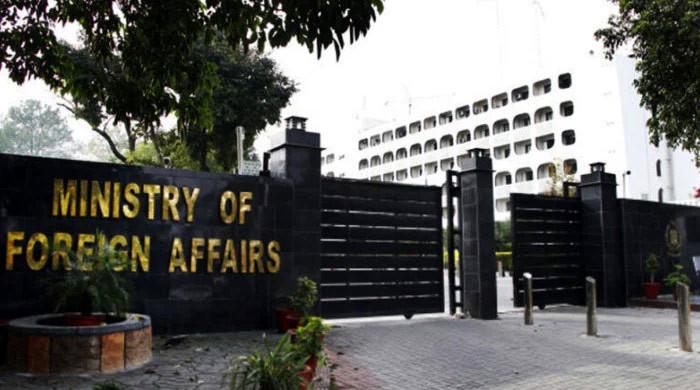Government directive buries Freedom of Information law
ISLAMABAD: In a major dent to transparency and people's right to know, the federal government has almost buried the Freedom of Information law by issuing a directive that allows all the ministries...
October 04, 2015

The directive, issued last month by the Cabinet Division, gives the federal ministries, divisions and other agencies a wide scope to prevent from sharing even ordinary information in the name of "public interest".
Sources in the Cabinet Division told The News that this directive has been issued following a citizen's demand for information from the Cabinet Division about the nature and details of gifts received by the top-most public office holders from foreign dignitaries during the recent years. The Cabinet Division refused to provide this information following which the citizen approached the Federal Ombudsman, which under the law is the appellate authority to challenge such decisions.
Since there was no legal ground to do what the Cabinet Division did, the Ombudsman directed the Division to provide the information to the citizen. The Ombudsman office said that the information required was not classified as per the law of the land. However, the Cabinet Division instead of sharing the information, approached the higher authorities to protect from making public any information about the matter in the name of "public interest".
The federal government made the Freedom of Information Law totally ineffective and laughable as the directive was issued to all ministries and divisions to block any information in the name of "public interest".
The government directive, issued on September 8, advised all federal ministries "to immediately exclude from the purview of Freedom of Information Ordinance 2002, under the provisions of Article 8 of this ordinance, all documents and record which if publicised could compromise the public interest."
Right to information is the fundamental right of citizens to access the information held by the government to ensure transparency in government actions, decisions, spending, etc. In many countries, this right is extended to almost all types of official record, however, authorities here continue to resist even sharing routine information despite the availability of law.
The latest directive will strengthen the hands of bureaucracy which is already the biggest hurdle in making things transparent and sharing the information which would help holding the rulers and civil servants accountable.
Operative part of the directive having subject "Classifying sensitive information under Freedom of Information Ordinance, 2002", reads as: “Freedom of Information Ordinance, 2002 provides access to general public to the official record. However, the record, sensitive in nature, can be exempted from provision to anyone under Section 8(i) of the said ordinance by excluding the same from purview of the ordinance, in public interest. In accordance with the ordinance, the citizens of Pakistan approach the ministries/ divisions for seeking certain information regarding official record.
"2. In the light of above ordinance, a citizen requested the Cabinet Division to provide some information of sensitive nature, which was regretted by the Cabinet Division. However, on a complaint lodged by the said citizen, the Wafaqi Mohtasib directed the Cabinet Division to provide the required information, as it was not excluded from purview of the said ordinance. Accordingly, the Cabinet Division submitted a reference . . . for invoking the Section 8(i) of the ordinance to the record requested. The [government] has been pleased, interalia, to direct the Cabinet Division as follows:-
"Advise all federal ministries to immediately exclude from the purview of Freedom of Information Ordinance 2002, under the provisions of Article 8 of this ordinance, all documents and record which is publicised could compromise the public interest.
"3. All ministries/ divisions are, therefore, requested to comply with the above direction . . . in letter and spirit and to classify properly all documents of secret and confidential nature in accordance with instruction 61 of the Secretariat Instructions."—Published in The News









